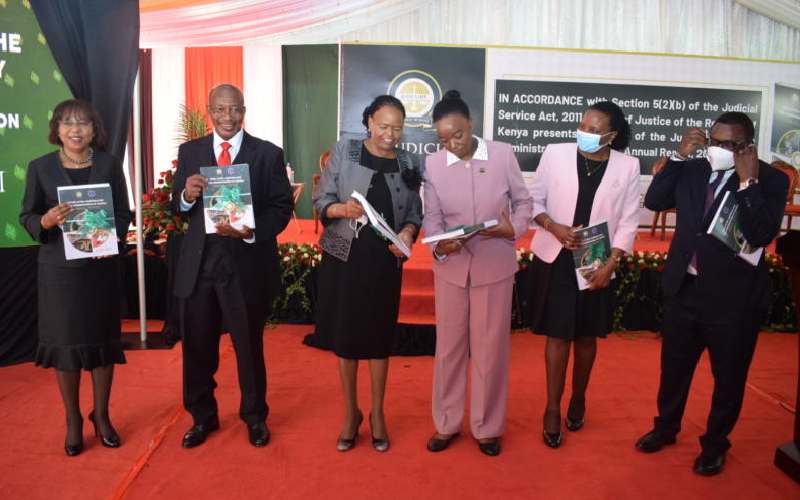×
The Standard e-Paper
Stay Informed, Even Offline

International Association of Women Judges president Agnes Murgor, Attorney General Paul Kihara Kariuki, Chief Justice Martha Koome, Energy CS Monica Juma, Supreme Court Chief Registrar Anne Amadi and Senate Speaker Kenneth Lusaka during the launch of the State of the Judiciary Administration of Justice 2020/2021 report. [Collins Kweyu, Standard]
President Uhuru Kenyatta has once again put the Judiciary on the spot, accusing judges of shielding their own from scrutiny.